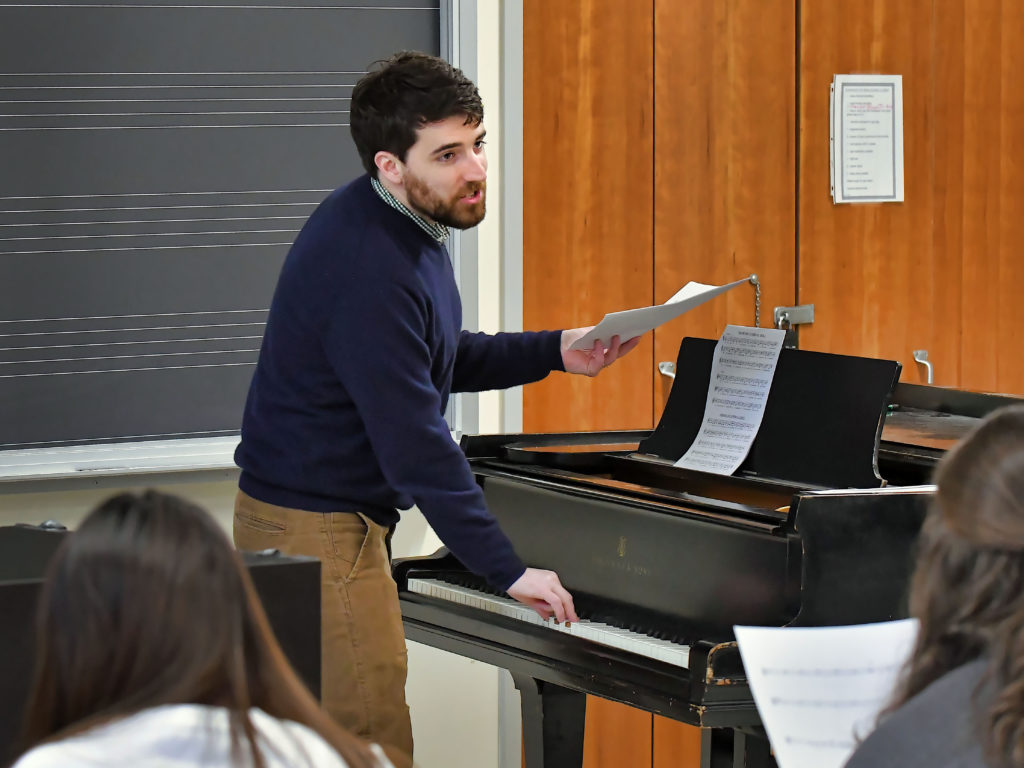Bridging divides through humanities
When confronting our world’s complex array of problems and challenges, humanities can help foster empathy through storytelling, said William Mason, assistant professor of music.
“The humanities are about the study of artifacts of human expression throughout the ages. It’s about storytelling. You can’t tell your story in a tweet or a hot take, and you can’t learn someone else’s story that way either,” he said.
A composer, performer and writer, Mason often ponders the role of humanities in society—especially recently. In June, he participated in the inaugural Summer Institute in Public Humanities, thanks to a grant from the Andrew W. Mellon Foundation.
The four-day conference in Portsmouth, N.H., co-sponsored by the University of New Hampshire, brought together academics from New England and beyond to explore methods of promoting public humanities.
Mason said a view widely shared at the conference is that the work of public humanities is all about a willingness to cultivate critical thinking.
“We’re a results-oriented and product-oriented world, and where so many problems facing modern society are so urgent—like immigration and climate change—we want to find a product or a result to fix it,” he said. “I don’t think there are simple solutions to complex problems, and I think that there’s going to be a need for a lot more slowness than is comfortable in order to make constructive or even reparative progress on big issues.”
For Mason, his slice of public humanities work involves tapping into music to give voice to refugee communities assimilating into the United States.
Last year, he collaborated with a nonprofit, Somali Mainer’s Youth Network, on a concert in a gallery in Portland, Maine. The refugees, mostly just out of high school, performed music and spoken word poetry that expressed what it means to be Somali-American.
“Putting people in a room together and letting them have the space to express themselves and be heard—deliberately, slowly—is an act of community and of humanization during this fractured time,” he said. “It was beautiful, and it happened at a time where I was wondering about what my Americanness meant to me. I listened to these high schoolers share their stories and it was immediately clear that we were processing similar issues, and doing so communally.”
He added, “That, for me, is what it means to foster empathy: to pause and listen and think together. I’ve always found music to be the way that I can express myself most effectively, and it’s the way that I tend to be receptive to the stories and expressions of others.”
Mason hopes to engage Wheaton students in similar work with African immigrants in New England. His goals coming out of the conference are to meet more people in that community and talk to organizations about their needs.
“I’m looking to keep mounting events and community engagement. Creating a larger platform—like a digital platform, a website or web archive—would be a step. My plan is to get Wheaton students involved with every aspect of this, from staging and documenting the concerts to creating a space for them to live online,” he said.

